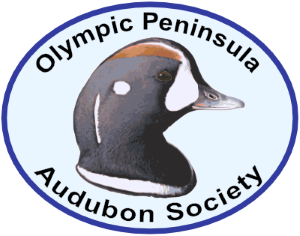Magellanic Penguins. Photo: Catherine Dobbins Dalessio/Audubon Photography Awards
“Penguins in the Coal Mine”
Presented by Dr. Ginger Rebstock, Katie Holt and Caroline Cappello of the University of Washington
Wednesday, March 17, at 7.00pm
Meeting held by Zoom. Register below to receive Zoom information
Just as canaries served as indicators of mine air quality, certain species of wildlife can alert us to important elements of environmental change. University of Washington research scientist Dr Ginger Rebstock, and PhD candidates Katie Holt and Caroline Cappello will generously present their current research findings regarding various states of penguin ecology, including how changes in penguin body mass reflect changing oceanic conditions; breeding at Punta Tumbo, the world's largest Magellanic penguin breeding colony; and patterns of oceanic productivity and temperature that help explain penguin foraging and breeding behaviors.
Caroline Cappello
Caroline Cappello is a PhD Candidate in the Department of Biology at the University of Washington. She has studied Magellanic and Galápagos penguins at the Center for Ecosystem Sentinels since 2014. Caroline will present work from her dissertation on the consequences of delayed breeding in Magellanic penguins at Punta Tombo, Argentina. Chicks are hatching ca. 10 days later than they did in the 1980s, which may lead to a mismatch between chicks and their food source.
Dr. Ginger Rebstock
Ginger Rebstock is a researcher in the Center for Ecosystem Sentinels at the University of Washington. She received her Ph.D. in biological oceanography from Scripps Institution of Oceanography in 2001. Ginger will introduce Magellanic penguins and one of their largest breeding colonies, Punta Tombo, Argentina. Dr. Dee Boersma, founder and director of the Center, has studied penguins at Punta Tombo since 1982, and Ginger has worked there since 2001. Ginger will describe the life history of Magellanic penguins, emphasizing what can only be learned through long-term study.
Katie Holt
Katie Holt is in her third year of graduate study with her advisor, Dr. Dee Boersma of the Center for Ecosystem Sentinels. She started working with the lab in 2015 as the lab manager and has spent four field seasons at the Punta Tombo, Argentina breeding colony. One of her main roles in the lab is helping to maintain the automatic weigh scales that weigh penguins as they enter and exit the colony. She will be discussing a recent heat mortality event that occurred on the hottest day recorded since the study began in 1982.
Register for the Virtual Meeting and Program: “Penguins in the Coal Mine” by clicking on the button below. Scroll down in your confirmation email message from Eventbrite to the "additional information" for Zoom instructions. You will also receive a reminder one day before the event that will again provide the Zoom instructions.

